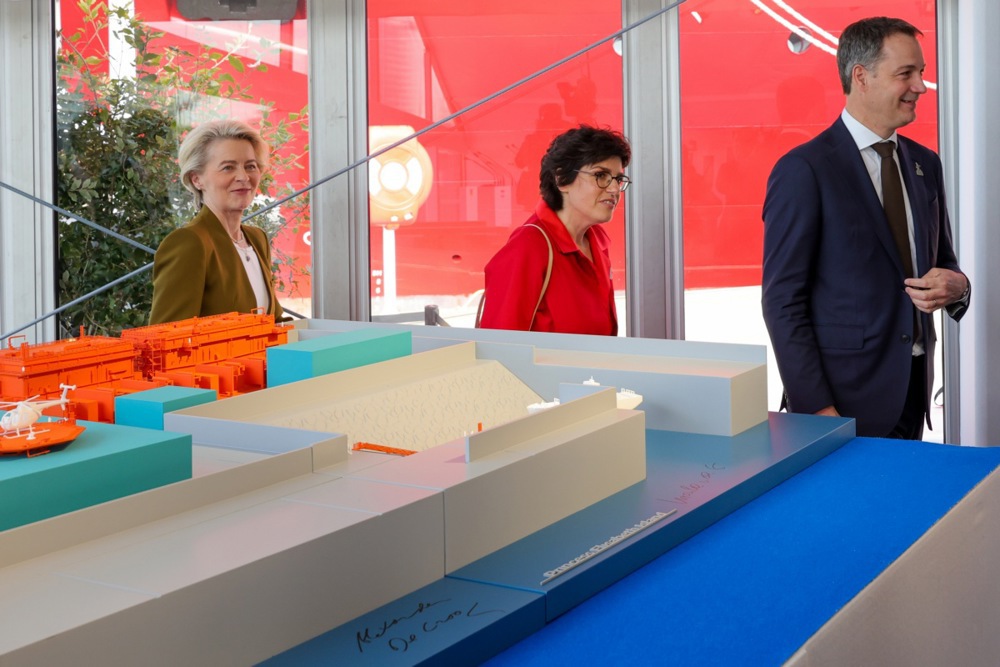The Belgian Government is said to be giving extra subsidies to old and highly polluting jet engines to help make up for the closing of nuclear power plants.
Three extra auxiliary power generators — described by experts as effectively being identical to jet engines — will receive financial support to prevent power shortages, on top of the five already in use, state broadcaster VRT NWS reported on November 9.
Most of them have been in use for more than 50 years but the engines can be quickly fired up to create extra power when needed.
On the downside, according to Belgian media, they are highly polluting, loud and inefficient.
Outgoing Minister of Energy Tinne Van der Straeten said the subsidies were a one-off and a requirement of the European Union, because they serve to protect the grid.
Journalists went to see residents living near the jet engines, who complained about the half-a-century-old kerosene-guzzling machines.
“That noise is really driving me crazy. It was a complete madhouse today. They are running the Boeing engine again,” one local was quoted as saying, referring to the loud noises they create.
The engines are used a couple of times per year to generate electricity when needed and that need is expected to rise, as Belgium is set to end generating nuclear energy soon.
In 2022, they were used for 162 hours, generating almost 10,000MWh, enough to power about 2,000 average households annually according to UK-based building firm Vandersanden.
While the engines have been in use for decades, this will be the first time they receive government subsidies, a ruling coalition that includes the Greens.
Since the engines can achieve high rotational speeds, they can also efficiently and quickly generate large amounts of electricity.
This is needed to cope with sudden fluctuations when, for example, a power plant is offline. Renewable energy has more variables due to variations in wind or sun that occasionally hit the production.
If fluctuations are too severe, they can create significant power shortages or occasionally blackouts.
Six of the eight jets date from the late 1960s and early 1970s. They are akin to the engines used in Boeing 707 passenger planes in the 1960s.
VRT NWS noted that in the 1970s, gas turbines were already on the market, which were cheaper, more efficient, made less noise and less polluting.
Recently, batteries that can store “green” energy have become available. This climate-friendly alternative can provide the power needed within seconds.
Most commercial jet engines, on the other hand, use kerosene, which is highly polluting. A single such engine needs around 7,000 litres per hour and has a return of only 20 per cent, Dirk Van Hertem, a professor at KU Leuven said.
Next to being less than half as efficient as a gas turbine, it produces three times as much carbon emissions, making it more polluting than coal plants.
In addition, their poor combustion also releases other pollutants such as nitrogen oxides, unburned hydrocarbons and particulate matter, VRT NWS reported.
It was hoped such polluting engines would become a thing of the past soon but because the government is ditching nuclear energy, it is feared they will be needed more than ever soon, especially on cold, dark winter days.
They are seen as a better alternative than gas turbine stations because they are no longer lucrative in Belgium and can’t be counted on in a market that is volatile because of renewables.
Belgium introduced a Capacity Remuneration Mechanism (CRM) in 2021 to ensure electricity supply security after the planned closure of nuclear power plants.
Annual auctions are held to select capacity offers for future delivery periods.
The system is technology-neutral and flexible, allowing participation from various resources including gas and battery plants.
There is one exception — coal plants. They are excluded because they create too many carbon emissions.
Apparently, the EU did not consider the jet engines, despite the higher emissions produced by them.
According to Van der Straeten, the use of the extra engines would be a one-off with a price tag for 2025 said to be around €1.5 million.





